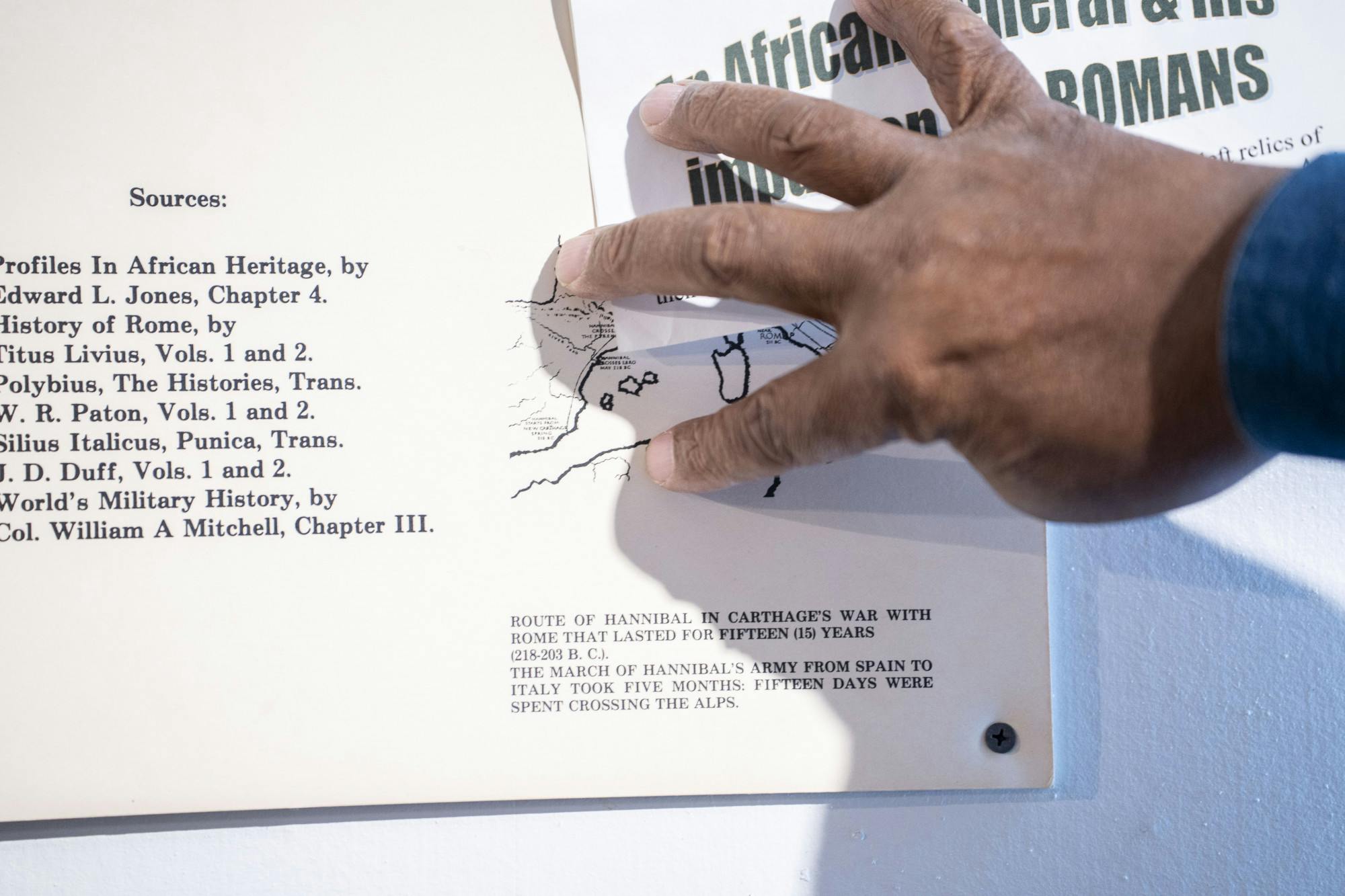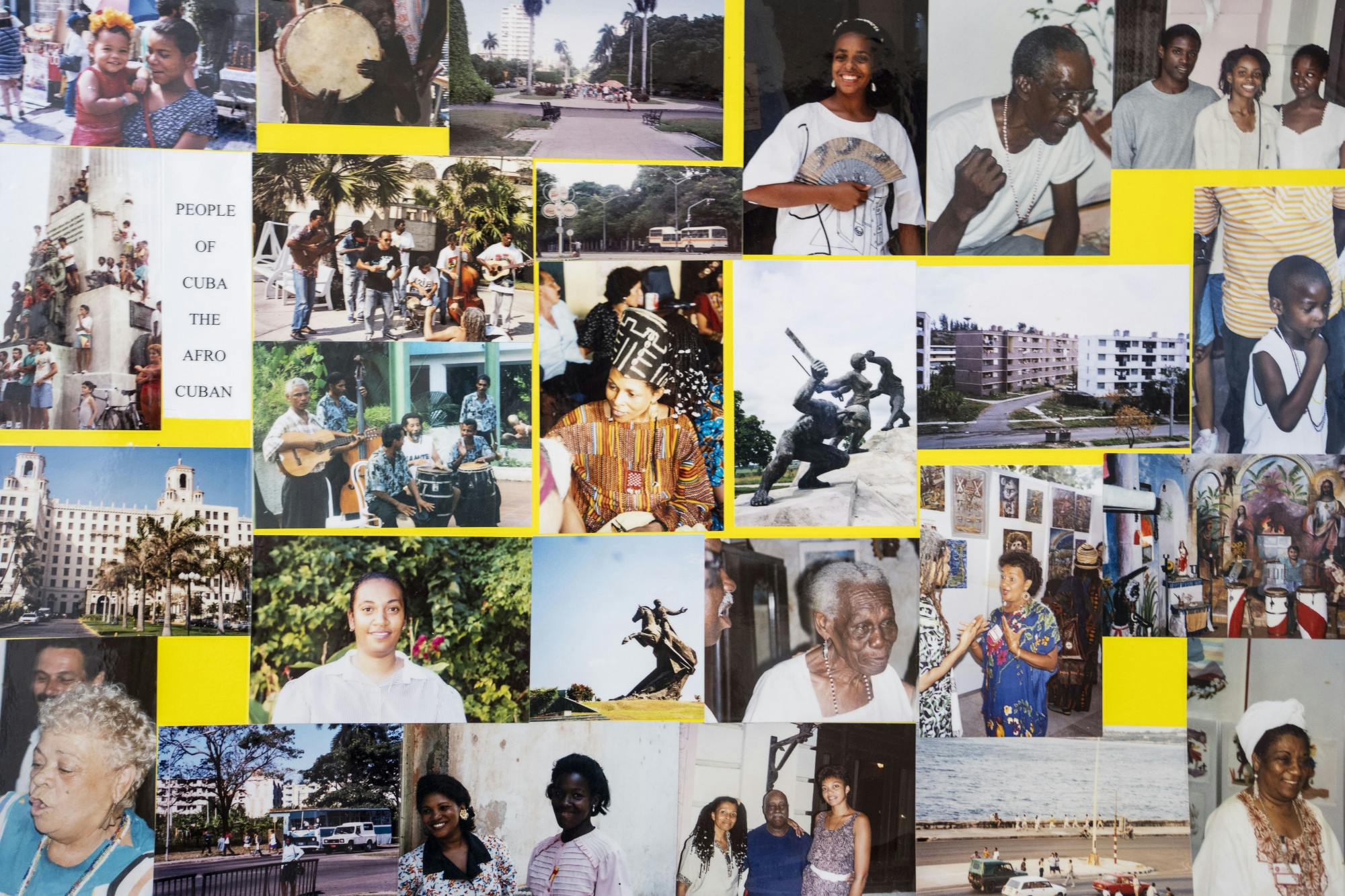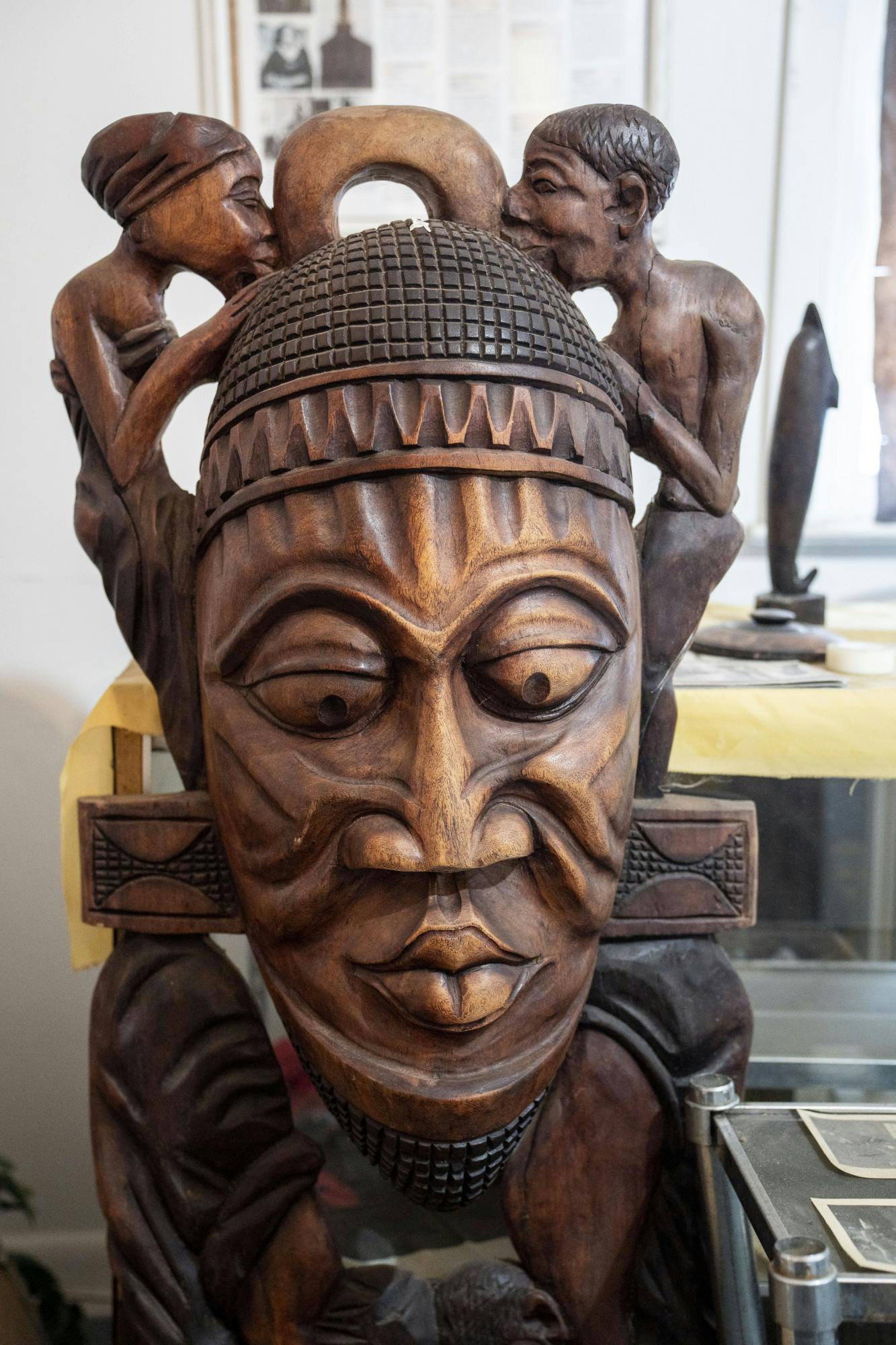In 1976, professor and civil rights activist Willie Davis was fired for turning his history class into an African American history class.
Today, Davis owns his own African history museum, All Around the African World Museum and Resource Center.

Dr. Willie D. Davis, the owner of the All Around the African World Museum and Resource Center, showed the route of Hannibal across northern Africa at the museum on Feb. 25, 2022.
In 1976, professor and civil rights activist Willie Davis was fired for turning his history class into an African American history class.
Today, Davis owns his own African history museum, All Around the African World Museum and Resource Center.
Through extensive travel and research, Davis has documented the African Diaspora throughout the world, sharing with the Lansing community. Davis has dedicated his life to resistance through education — educating others about the African diaspora in hopes that they learn about the community’s rich heritage.
Fifty years ago, Davis went to jail for participating in the civil rights and Black Power movement. He was a member of the Republic of New Africa, a Black nationalist group that wanted to have its own state in the south.
“You know, being involved in the civil rights struggle and the black power struggle, and especially in the 60s, when so much literature was coming out looking at Black history,” Davis said. “So, when I started to do my international travel, I always would go to places where you know, where there were people of African descent. And if it wasn't, I would find them.”
Since getting his Ph.D. at Michigan State University in international comparative education, Davis has visited every continent other than Antarctica, researching the African Diaspora and collecting photos, art and artifacts.

Davis said once misconception about people of African descent is that they only come from Africa, when in actuality, people of African descent are from all over the world.
“There's been so much negativity about Africa, and … people of African descent, I thought that I would try to illustrate the positive," Davis said.
Ghana is one of the countries that Davis said he finds himself going back to again and again. It started years ago when Davis worked with the Michigan Health Department. The first year he started with the health department, Lansing organized a public health initiative in Ghana, where Lansing’s sister city, Akuapim, is.
Lansing sent Akuapim aid in the form of wells, medicines and health education. Davis continued to take trips to Ghana with the health department, and surveys they conducted proved that their aid helped the sister city.
Now, Davis visits annually for Ghana’s Independence Day festivals. A large portion of the museum is dedicated to his time in the country, with photos from decades past documenting the people he’s met through his work there.
Tanzania is another favorite destination for Davis.
“It fits my, you might say, revolutionary spirit!” Davis said.

A carved wooden statue at the All Around the African World Museum and Resource Center in Lansing, on Feb. 25, 2022.
From unity sculptures carved from a single piece of wood, to elaborate spiritual masks and a depiction of the chocolate-making process, Davis’ museum is full of different ways to look and to learn. In the European section of the museum, Davis has a corner devoted to England, and the British community of Black people, including pictures of Black bookstore owners and Black neighborhoods in London.
In a section that explored the Black diaspora in Brazil, Davis had documented a festival honoring a dead priestess, with photos of women in white robes, explaining that white was the color of death in that community.
Davis has plans to expand the museum this summer, devoting space to the Black community in Lansing, where he can add an artifact that he already has — equipment from the first Black, 24-hour cable television station in Lansing.
Support student media! Please consider donating to The State News and help fund the future of journalism.
The museum is a detailed resource for those doing research on the Black diaspora. Davis has primary source documents and artifacts from all over the world, including British travel guides for Black tourists from the 60s and research from Michigan on Black populations by county from decades ago.
Curating this museum has been important to Davis, as it’s given him a chance to explore his heritage.
“We have a unique history of not coming here as immigrants; we were brought here by force … so our history was purposely taken from us,” Davis said. “So, it was important for me to help to restore that.”
Davis said he hopes that those who visit the museum gain “an appreciation of people of African descent around the world and their contributions ... both historical and contemporary.”
Featured on the Greater Lansing Michigan African American Heritage Trail, the museum is a great way to explore local Black history. One can visit the museum by making an appointment with Davis, who charges no admission other than free-will donations and offers a guided tour through each exhibit.
Editor's note: The headline of this article has been updated to reflect that the museum is not new to the area.